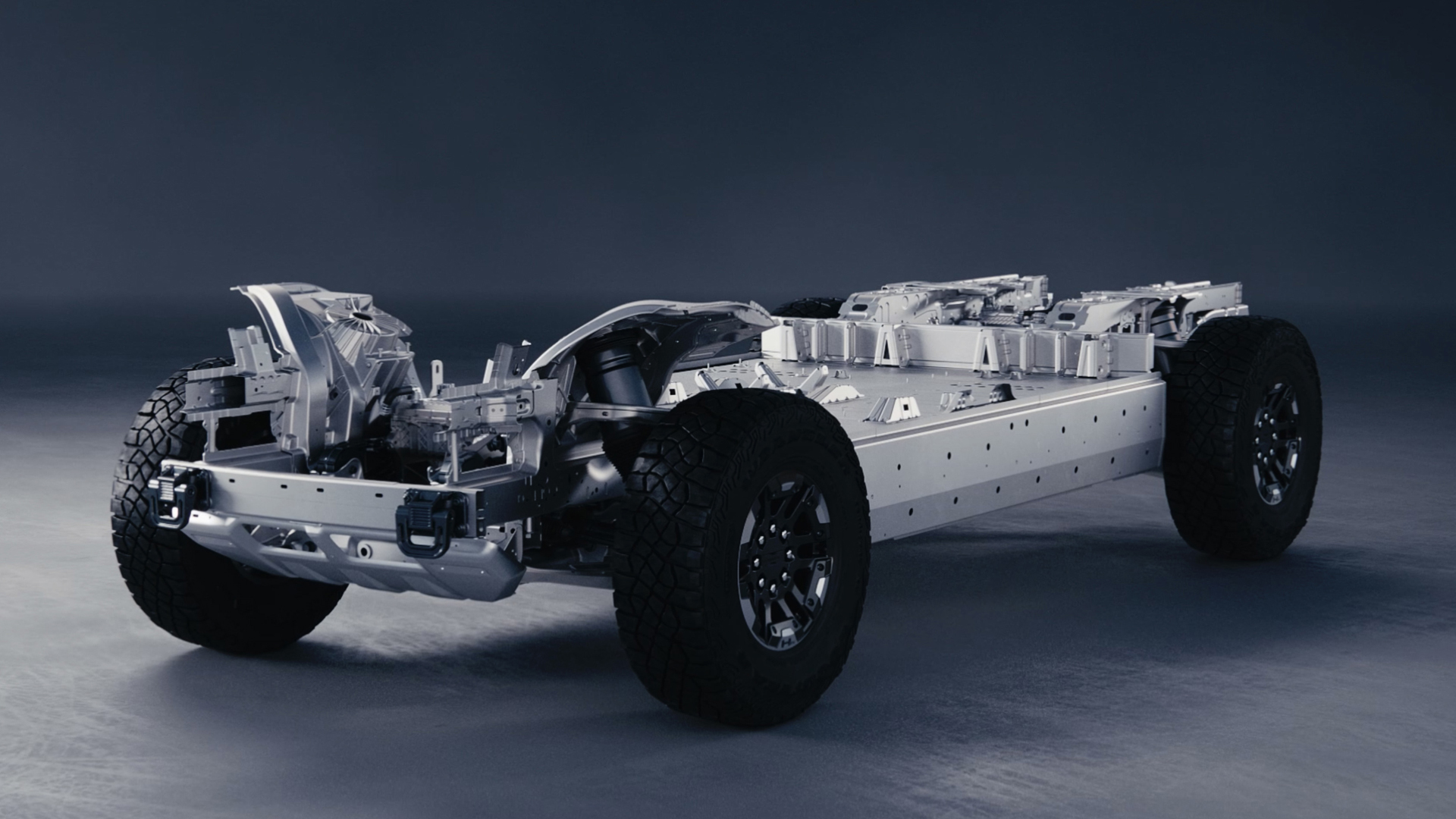

General Motors’ Ultium platform is its premium electric vehicle architecture for models like the GMC Hummer EV and forthcoming Chevy Silverado EV, plus the group’s upcoming collaboration with Honda. It might surprise you to know, then, that it’s only just announced today that the line of battery-and-motor platforms Ultium encompasses will be getting a heat pump. If you’re unfamiliar, heat pumps allow the battery to better use the energy for driving and towing and all that good stuff, rather than wasting it on boring things like heating the battery or air conditioning.
Heat pumps aren’t obligatory to EVs by any means, and something basic like the Nissan Leaf definitely won’t have one. They’re handy, though, and something you’ll see mentioned when we rate and review new electric cars.
Tesla has fitted them to some of its models for a few years (although not without some significant problems) and the Polestar 2 comes with one, not unexpectedly for a company connected to Sweden. A heat pump’s real value is in storing warmth from the motor to heat up the battery, which in cold climates means you don’t see the state of charge drop-off that happens below a certain temperature with lithium-ion. It can also be used to heat the cabin, which means there’s less demand on the battery’s capacity for duties that aren’t propulsion.
GM’s Ultium heat recovery system is really interesting as it’s able to recover not just from the motor but the battery itself if it’s warm enough, which it would be during performance driving or fast charging. Cooling it down means faster charging, which if you’re having to fill up a real big battery like the 212.7-kilowatt-hour beast in the Hummer EV is gonna be essential to getting on with your day.
On a media call, GM told me that the recovery system doesn’t add any significant mass to the vehicle, which is important given the sheer weight of the vehicles Ultium is being put in.

Lawrence Ziehr, the project manager on the heat recovery system, told journalists, “It’s more sophisticated than even the most advanced geothermal heat pump that you would find in modern homes. We could do several things with this energy, including increase the range of our EV’s power, low-level function, electrical functions like heating, and even preconditioning over batteries for faster charging and acceleration.
“For example, we can heat the cabin of our EVs more quickly in cold weather than comparable internal combustion vehicles,” Ziehr continued. “As we’re using less of the batteries energy for things like heating, that means that the battery energy left over will offer more range. Ultium energy recovery can extend the range of our EVs by as much as 10 percent in a vehicle with 300 miles of range. That’s an extra 30 miles.“
That’s pretty neat, especially if you live somewhere cold. But a heck of a lot of EV owners are in California where that’s less of a concern and you’re more likely to want to flick the AC on than the heating. Ultium’s recovery system can also take heat out of the cabin—including bodyheat generated by passengers—to make the ambient temperature cooler, meaning the battery doesn’t have to work so hard to keep things comfortable.
GM isn’t the only company to have brought out a premium truck without a heat pump, as the Rivian R1T and R1S don’t have one either. Whether Ultium making the move will force Rivian’s hand remains to be seen but premium vehicles without a heat pump are gonna start looking pretty sus, in value terms.
Got a story tip? Mail it in on tips@thedrive.com